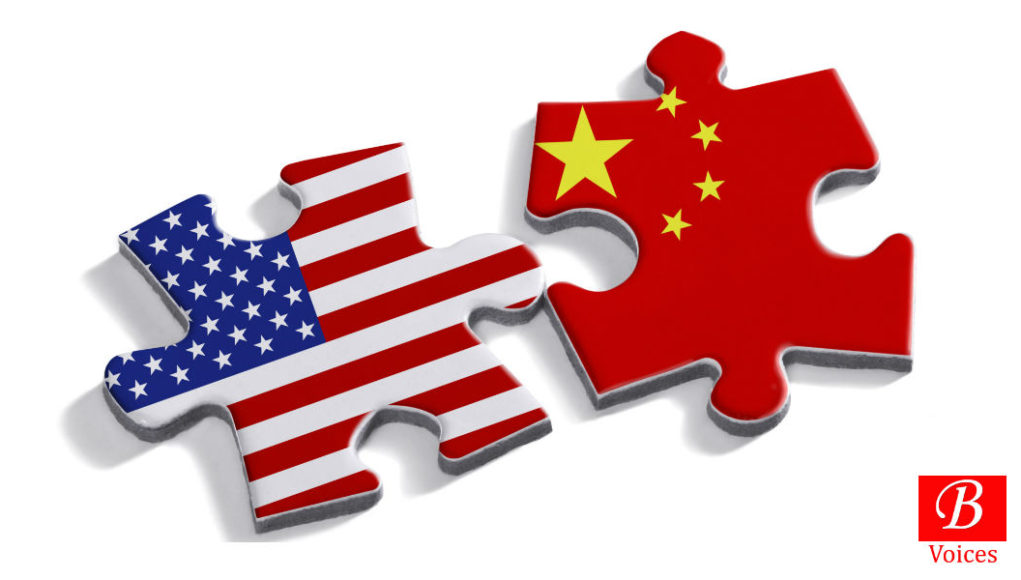Tahira Khan
Since the Trump era, there has been rigorous debate regarding the future of US-China relations. The debate revolves around the major causes of rivalry and strategic competition between both countries. Furthermore, scholars are also probing the implications of this rivalry in the regional and global contexts. In particular, both countries have opted for different strategies to deal with this tense situation. In a more recent turn of events, Chinese President, Xi Jinping, has focused on military preparedness and defense capabilities to cope with the rising uncertainty in the international realm, particularly where the US is focused on alliances like QUAD and AUKUS. In a recent speech, Xi focused on the theme of war and defense readiness along with plans to make China independent of imports.
It is pertinent to define the narratives and strategic approaches of both sides to understand why the relations are intense in the first place. In addition, it is also significant to define why some issues are a matter of concern for the US while others are not. Accordingly, US-China strategic competition is a first of its kind where a wide range of issues are put to define the complexity of the situation including territorial sovereignty, technological advancement, human rights, and trade along with regional and global security.
As far as the US side is concerned, it has labeled China as a revisionist state along with being its strategic competitor. In return, the Chinese administration has adopted the struggle narrative. More recently, the rivalry between both states has entered a more serious stage. The US has introduced a new set of tariffs on Chinese products that are not beneficial for the trade prospects. Besides, the US has also imposed technology sanctions against Chinese companies along with criticizing the political system of China. According to the US narrative, the Chinese political system is largely authoritarian and involved in human rights abuses in Xinjiang and Hong Kong. However, the Chinese administration insists on avoiding the context of ‘strategic competition’ in US-China relations and argues for more a different kind of relations where great power can coexist peacefully.
In particular, the strategic competition between China and US has undergone various phases. In the first phase, the US started a kind of trade war with China. During this phase, the US imposed high tariffs on several companies in China and imposed technology sanctions that hit companies like ZTE and Huawei. Moreover, during the period, the US also passed laws that further hampered its relations with China. Such laws may include Taiwan Travel Act. On the other hand, the US also went for other strategic cooperation with other countries as that in the case of the Quad and Indo-Pacific Strategy. In return, the Chinese administration also imposed tariffs on US products to leverage its position in the trade war. Furthermore, China also entered negotiations to stop the negative implications of ongoing strategic competition. These efforts led to several trade agreements which normalized the relations to some extent.
In the second phase of US-China tense relations, the world witnessed verbal attacks against the Chinese political system. This period also witnessed restrictions on visits of the CPC to the USA and criticism against the one-China principle. Therefore, during the Trump administration, US-China relations nosedived and were caught in a sort of downward spiral case. As far as the third and most recent phase is concerned, the relations have hit the lowest ebb in the years. As per the Annual Threat Assessment Report from the US Intelligence Community, on March 8, 2023, China is considered the main threat to the US, particularly, and the world, generally. The annual report has discussed various factors which China can use to disrupt the US interests and these factors include military capabilities, WMD, Space, Technology, economy, Cyber, and malign influence operations.
In this regard, the Biden administration is all clear to strengthen the alliances and counter China via multiple fronts. The administration has mainly focused on genocide, expansionism, and authoritarian-style rule of China. As far as the authoritarianism structure is concerned, the Biden administration is all bent to push NATO to view China as a threat to the rule-based international order.
Besides, the Biden administration is also focused on security alliances in the form of QUAD and AUKUS. The hostility of relations is now more clear because the US successfully polarised the attention of the world regarding the Taiwan issue as well. In return, China tried to defend its position on Taiwan claiming it to be the part of PRC. In this context, the Chinese administration conducted military drills around the island to claim its sovereign status. However, on 14th November 2022, the Presidents of both countries met in Bali to normalize the bilateral relations.
Following that, it is important to dissect why the US choose some issues to leverage its position against China owing to the context of strategic competition. These issues are largely analyzed by Chengqiu Wu who is an Associate Professor of International Politics, at Fudan University, China.
According to Chengqiu Wu, the foremost issue of US-China rivalry constitutes a trade war. According to the US Trade Representative, in 2018, China’s trade surplus with the US was approximately $378.6 billion. However, China’s statistics mentioned that its goods exports to the US totaled $478.4 billion in 2018. In 2019, when the trade war started, these statistics fell and exports totaled $418.7 billion. According to the US perspective, reducing the trade surplus of China could bring many positive economic and political benefits. Firstly, the imposition of high tariffs may pressurize foreign companies to move out of China. This will not only hamper the economic progress but will also impact the position of China in the global value chain. Eventually, the imposition of high tariffs will help the US to increase its material power gap with its rival. Similarly, the US can also shift the focus of domestic attention toward China in order to cover domestic failures and gain public support for the leadership as well.
Furthermore, the second issue of US-China strategic competition constitutes technological advancement. Chengqiu further explores how the US can drive potential benefits from sanctions if it remains successful to restrict China’s access to advanced technological development. This will help the US to maintain its technological superiority which is one of the vital factors of military and industrial advancement as well. Currently, the US has accused Chinese companies and the government of technology and information theft. This eventually undermined the image of China and its technological business in the international market.
The third issue in US-China relations constitutes the ‘Taiwan issue’. By intervening in the Taiwan issue, the US can bolster its image as the sole defender of rule-based order and democracy. On the other hand, there are several implications for China if the US successfully politicized the Taiwan issue. Firstly, it will bolster the support for Democratic Progressive Party (DPP). Secondly, the US may also demand Taiwan to develop its military capabilities which is a threat to the sovereign status of Beijing. It is also important to mention that consolidating the political system of Taiwan means disturbing the security environment of China. In that spirit, both factors go in contrast. However, in the case of the Taiwan issue, there is a great deal of ambiguity as well.
In particular, the fourth issue relates to the territorial dispute including the South China Sea issue and the Diaoyu/Senkaku Island dispute. In this regard, the US can gain a military advantage by intervening in the issue and also by supporting Japan to confront China over the Diaoyu/Senkaku issue under the pretext of freedom of navigation. However, the US has more interest in the South China sea issue as compared to the island dispute. Firstly, South China Sea issues involve many countries including Brunei, Malaysia, Vietnam, and the Philippines leading to a wider arena of attention and confrontation against China. Secondly, the issue has also enabled the US to play an active and dominant role in the region. Nevertheless, there is also a possibility that the US may deploy weapons and carry out more Freedom of Navigation Operations (FONOP) in the region to counter the rising influence and military advancement of China.
Lastly, human rights violations have greatly hampered the soft image of China. According to Human Rights Report, China is increasingly involved in online censorship, death penalties, zero dissent tolerance, and genocide of ethnic minorities. It further argues against China’s strict policies of faith and religious practices along with the Orwellian-style surveillance system. These actions have questioned the authoritative structure of the Chinese political system and its conservative approach toward issues among the global powers. In contrast, the same violations have helped the Biden administration to strengthen its western alliances and consolidate domestic support, particularly those from the Democratic Party. This has also enabled the US to argue why China as a global superpower is unfit for the world owing to its totalitarian ideology where its sole political party, CCP, curbs the freedom of citizens to grab power. In other words, the US still can argue why it is fit for defending the democratic norms around the globe, particularly in the East Asian Region.
The writer holds an M.Phil Degree in South Asian Studies from the University of Punjab. She can be reached on Twitter @TahiraGhilzai.
Click here to read previous articles of the writer.
Disclaimer: Views expressed in this article are those of the writer and Balochistan Voices does not necessarily agree with them.
Share your comments!








